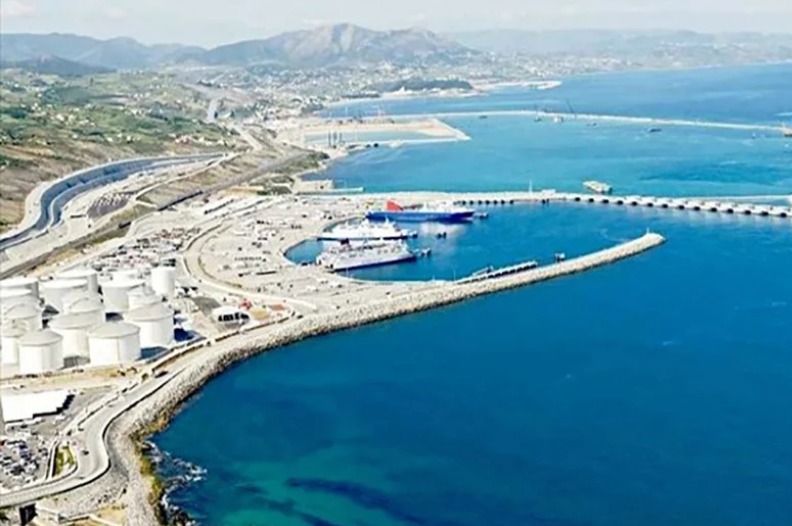In a world where energy autonomy has become a major national sovereignty issue, the Kingdom of Morocco has recently taken a giant leap towards consolidating its energy independence.
The announcement last month of the construction of new gas infrastructure, including liquefied natural gas (LNG) regasification plants and storage facilities at the port of Nador, along with a pipeline connected to the Maghreb-Europe network, is a striking demonstration of Morocco’s ambition for energy diversification.
This ambitious project, with its groundbreaking at Nador West Med, represents a strategic maneuver for Rabat, aiming to reduce its dependence on energy imports. In a geopolitical context marked by tensions and diplomatic rifts, notably the unilateral closure of the Maghreb-Europe gas pipeline by Algeria in November 2021, Morocco has demonstrated bold resilience.
By utilizing the Maghreb-Europe pipeline in reverse, the kingdom has not only secured its LNG supply via Spanish regasification plants but has also positioned itself, according to El Español and data from the Strategic Petroleum Reserves Corporation (Cores), as the top destination for Spanish gas exports.
This initiative is part of a broader framework of energy transition led by Morocco’s Ministry of Energy Transition. Last March, a memorandum involving various institutional actors was signed, affirming Morocco’s commitment to consolidating its energy sovereignty, decarbonizing its economy, and connecting to regional and global energy markets.
This memorandum aims to produce 500 million cubic meters of LNG per year and achieve energy self-sufficiency for the country. These initiatives not only guarantee a stable and secure supply of natural gas but also pave the way for greater flexibility in managing the country’s energy resources.
In addition to LNG, Morocco is also focusing on renewable energies, including green hydrogen and its derivatives, underscoring its commitment to a lower-carbon economy. The realization of the transatlantic gas pipeline with Nigeria, promising to enhance regional integration and the economic and social development of West African countries, highlights Morocco’s strategic vision.
This major advancement places Morocco at the heart of regional and international energy dynamics, making the Kingdom a key player in the energy transition. In these uncertain times, Morocco demonstrates remarkable resilience and an unwavering determination to lead its people into an era of energy independence and prosperity. It sets a model of innovation and leadership to follow, already inspiring beyond its borders.
The Kingdom’s commitment to diversifying its energy sources and increasing domestic energy production reflects a clear-sighted strategic vision.
Morocco is undoubtedly on the right path towards energy independence, an ambitious goal that nonetheless faces challenges in the current context of climate change and geopolitical volatility.
Moreover, the Kingdom exhibits remarkable leadership in renewable energy. With substantial investments in solar, wind, and potentially green hydrogen, Morocco aims to increase the share of renewable energies to 52% of its installed electricity capacity by 2030. This shift towards clean energies not only positions Morocco as a pioneer in Africa but also contributes to the global fight against climate change.
The transatlantic gas pipeline project with Nigeria also illustrates the quest for regional integration and sustainable economic development. This effort to build transnational energy infrastructure underscores the importance of regional cooperation in achieving energy security.
Through sustained efforts and a well-defined energy strategy, Morocco is confidently moving towards energy independence. By continuing on this path, the Kingdom not only strengthens its energy sovereignty but also plays a leadership role in the energy transition at the African and global levels.




